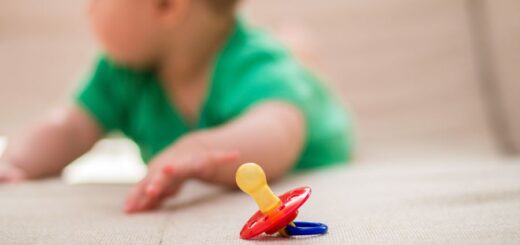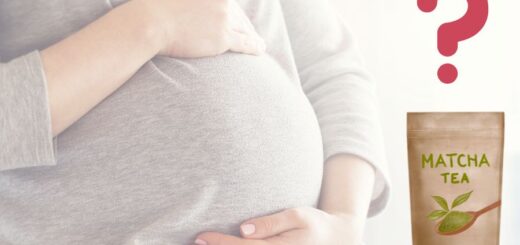Complication of Early Childhood Caries
Early Childhood Caries (ECC) refers to the occurrence of a single or many decayed, missing, or filled tooth surfaces in an infant generally between the age of 0 and 71 months. And its severe form is called as progressive or atypical or rampant or acute patterns in dental caries. ADA (American Dental Association) emphasizes that ECC is a major health problem affecting almost everyone generally.
All the dental professionals are recommended by ADA to highlight that the child’s teeth is vulnerable for decay soon after its first appearance. Early Childhood Caries is a contagious disease. Though there are many phases or forms of Early Childhood Caries, baby bottle tooth decay (BBTD) is one of its serious manifestations occurring more prevalently.
ADA suggests all individuals including parents and guardians, soon after their child gets his/her first tooth, to immediately get in touch with a dentist for the following.
why do the teeth rots?
- Setting up the first dental visit for your child: It is highly recommended to visit your dentist within six months of the appearance of the first tooth. And before the child is one year old.
- Becoming aware of the oral health education (anticipatory guidance) depending upon your child’s developmental requirements.
ADA pushes all its members to spread awareness among the parents and caregivers regarding the reduction of the risk for ECC and BBTD later. Some of those facts are summarized as follows. - Bacterial Reduction: Owing to the high transmission levels of cariogenic bacteria (particularly streptococci mutans). It is recommended to reduce the levels of mutans of the mothers to reduce the child’s risk of Early Childhood Caries. ADA hence suggests the parents and caretakers to get a dental check up themselves
Nutrition: both infants and youngsters must be given a balanced diet which follows the US Dietary Guidelines necessary for Americans. This has been published by Departments of Agriculture and Health and Human Services. Unlimited consumption of liquids, foods and beverages rich in sugars or fermentable carbohydrates offered willingly to the child can result in tooth decay and its removal finally.
- pacifier damages
• Bottle Feeding: unlimited intake of liquids rich in sugar during either daytime or nighttimes must be discouraged strongly. Infants must be given enough time between their liquid food and sleep during nights especially.
• Breast Feeding: unrestricted breast feeding during night times after the child gets his first tooth must be avoided owing to the risk of developing ECC.
• Cup Usage: encourage your child to drink from his cup after his first birthday. But at the same time, do not force the child and give excessive training. He must act according to his own will.
• Home care
encourage everyone in your house to follow strict hygiene rules pertaining to everything, especially oral. This includes brushing the teeth soon after food or liquid consumption. Once everyone follows it, the child is bound to follow it by imitating your practices. This is very necessary soon after the appearance of the first tooth. In addition, get consultation from your dentist regularly for the rules to be followed at certain ages.
Will Pacifiers and Baby Bottles Ruin My Baby’s Teeth?
Sucking is a natural habit to every child and it develops out of its own accord. It is in fact developed in the womb by the inborn child. It is vital for the development of the child. The child feels at ease or comfortable in the initial years of life, long enough until he/she does not require any breast or bottle-feeding. Since it is tailor-made, most of the infants are comfortable in sucking their fingers, hands or pacifiers. But many feel this as a problem whereas it is a soothing habit for the infants. So what is it actually?
Will pacifiers pose any threat?
The reality is that during the initial years before the development of teeth. These sucking habits are not probable to cause any damage. But in the long term, if this habit persists, particularly after the appearance of permanent teeth (say at an age of 6 years), this habit is likely to cause problems like
- The front teeth in the upper part grow out slant.
- The front teeth in the bottom part will tilt in.
- Both the jaws can misalign.
- The crown of the mouth narrows.
However, there are certain precautions that can be followed to avoid this disaster. They can be obtained by contacting any dentist. But what about the bottle in increasing the risk of developing Early Childhood Caries, otherwise called as Baby Bottle Tooth Decay (BBTD) in its severe manifestation.
Never use a bottle for Early Childhood Caries
Most of the children feel comfortable with sucking habits and continue it by using a bottle, a sippy cup or a pacifier or through breastfeeding, though they no longer need such types of nutrition. In case of the presence of sugary liquids in such bottles instead of water. This sucking habit may lead to the risk of developing ECC and BBTD, which results in complete tooth decay.
The frequent presence of such fluids or those containing carbohydrates or sugars will make the teeth vulnerable for decay by providing the growth opportunities for cavity-causing bacteria. This occurs in the very primitive stages and spreads quickly thus resulting in pain and infection. This increases the risk of developing more cavities throughout the entire life of the child.

The CDC (Centers for Disease Control and Prevention) in US has estimated that nearly 28% of children between the ages of 2-5 years have developed this tooth decay problem. Among this 28%, a higher percentage is affected by BBTD, which causes pain while eating, playing and even sleeping. Such children with excessive damage needs removal of these teeth or repair it under general anesthesia even before they are three years old.
During the initial stages,
it may just seem that the teeth have tiny white lines or spots, particularly along the edges of their gums. In the advanced stages, these spots develop into browny ones and chip off themselves. Owing to their rapid progress, they can lead to severe problems before anyone notices. So it is the duty of parents to contact a dentist. And seek their advice in case of any discolorations being noticed.
Hence it is good to know the risk even before its appearance by starting an early dental care for the child. ADA recommends you to take your child to a dentist soon after the development of his first tooth and well before his first birthday. Baby teeth stay longer even after the child is no longer an infant, mostly to the age of teens. So take proper care to stay away from cavities. In case of losing the baby teeth early, the remaining teeth can grow into the space. Thus leading to crowded or crooked teeth in adults.
Our previous article Blocked tear duct in an infant: Symptoms and Treatment in the title blocked tear duct baby, blocked tear duct infant ve eye cold symptoms in babies information is provided..

Hello, I’m Dorothy. I love writing and researching articles. Reading books about baby health, care and pregnancy is my favorite. I will be sharing delicious and healthy information on food and baby food during pregnancy.













Medical abortion is a safe option to terminate an early pregnancy. But it does come with some risks. Learn to reco…
And helpful general statistics: “Miscarriage is the most common complication of early pr…
Depression is the most common complication of childbirth for women. Our new Pregnancy
This article has all the important information parents need to help keep the little ones teeth in good condition. When the change cups or visit dentist or when to even start brushing are all big questions for parents and this gives all the necessary information.